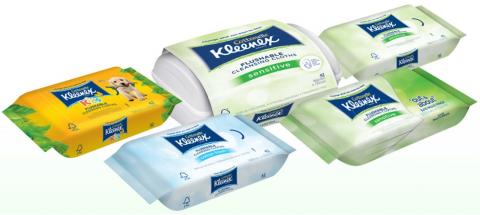The ACCC had alleged that in describing its products as ‘flushable’ on product packaging and its website, Kimberly-Clark had misled consumers about the suitability of its wipes to be flushed down the toilet.
“We argued that Kimberly-Clark’s wipes did not break apart quickly once flushed and therefore should not have been considered ‘flushable’,” ACCC Chair Rod Sims said.
However, the Court found that Kimberly-Clark’s claims were not false or misleading.
The Court ruled there was insufficient evidence to show that Kleenex Cottonelle ‘flushable’ wipes in this case, as opposed to ‘wipes’ products more broadly, had contributed to the problems in municipal sewerage systems.
The Court also found that it was reasonable for Kimberly-Clark to rely on guidelines, developed largely by nonwovens industry associations, to substantiate its ‘flushable’ claims. The ACCC had argued these guidelines were not an independent testing regime, as they were developed by the manufacturers of ‘flushable’ labelled products, without substantial input from wastewater authorities.
The Court noted that Kimberly-Clark did not expect its wipes to fully disperse in the sewerage system and that Kimberly Clark’s wipes had inferior properties of breakdown and dispersion than toilet paper. The Court noted this was consistent with a conclusion the wipes posed a risk of harm to the sewerage system but there was insufficient evidence this harm actually occurred, except in limited circumstances.
“The ACCC took this action because it was concerned that consumers were being misled about the very nature of the product they were buying,” Mr Sims said.
“We also took this case because we are aware of increasing problems reported by Australian water authorities as a result of non-suitable products being flushed down the toilet and contributing to blockages and other operational issues.”
“The ACCC is carefully considering the Court’s decision,” Mr Sims said.
While the Court dismissed the ACCC’s case in relation to the suitability of Kimberly-Clark’s wipes to be flushed, the Court did find Kimberly-Clark made a false representation when it claimed its wipes were made in Australia, in breach of the Australian Consumer Law. In fact, Kimberly-Clark’s Kleenex Cottonelle range of wipes were variously made in Germany, South Korea and the UK.
“Kimberly-Clark misled consumers into thinking they were purchasing an Australian product when this was not the case,” Mr Sims said.
“Business must not mislead consumers about where their products are made, or they risk facing court penalties.”
A hearing on relief in relation to Kimberly-Clark’s ‘made in Australia’ claims will be held at a later date.
Background
The ACCC instituted proceedings against Kimberly-Clark and separately against Pental Limited and Pental Products Pty Ltd (together, Pental) in December 2016.
In April 2018, the Federal Court ordered Pental to pay $700k for making false and misleading representations about its range of White King ‘flushable’ bathroom cleaning wipes after Pental admitted its flushable representations were false and misleading.
The following Kimberly-Clark products were the subject of these proceedings:
- Kleenex Cottonelle Flushable Cleansing Cloths - Sensitive, 42 wipes pack
- Kleenex Cottonelle Flushable Cleansing Cloths - Sensitive (Out & About), 3x10 wipes packs
- Kleenex Cottonelle Flushable Cleansing Cloths - Cotton Fresh, 42 wipes pack, and
- Kleenex Cottonelle Flushable Cleansing Cloths - Kids, 42 wipes pack.
The products in this case have since been discontinued, and replaced with a different range of ‘flushable’ wipes.
Product images




